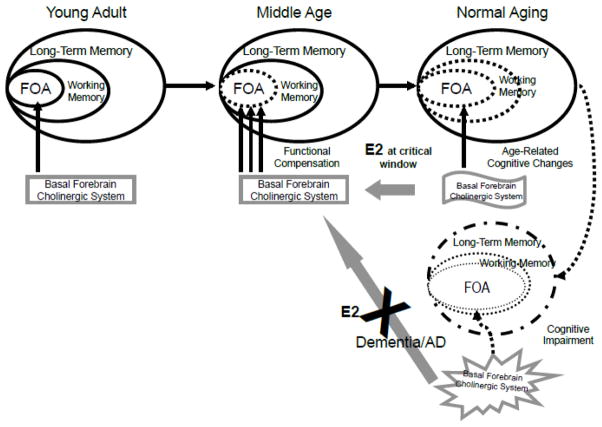Figure 8. Cholinergic functional compensation model of age-related cognitive dysfunction with the proposed role of estrogen.
The functional compensation model illustrating the effects of aging and cholinergic dysfunction on the focus of attention (FOA). Dotted and grayed lines indicate impairments. When younger adults (left panel) perform attention and memory tasks they show cholinergic modulation of the FOA. Normal cognitive aging (middle panel) may degrade the control processes of the focus of attention thereby affecting working memory and long-term memory. Functional compensation will recruit further activity of the cholinergic system and associated cortical areas to maintain adequate performance on a task. Estradiol (estradiol) treatment during the critical window may help maintain a middle-aged configuration of cognitive performance by maintaining cholinergic basal forebrain functioning. By contrast, estradiol treatment of dementia patients is ineffective because the basal forebrain cholinergic system is severely damaged and does not respond positively to estradiol treatment. Modified from Dumas and Newhouse, 2011.

